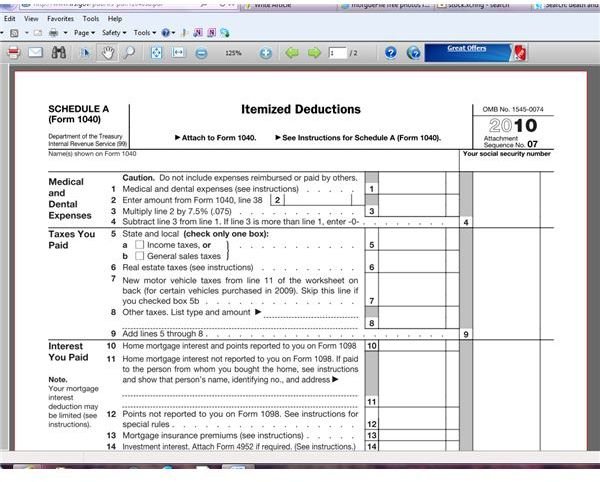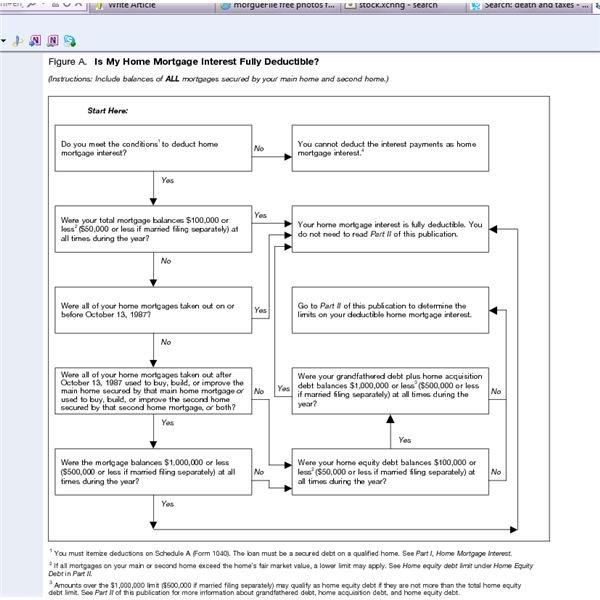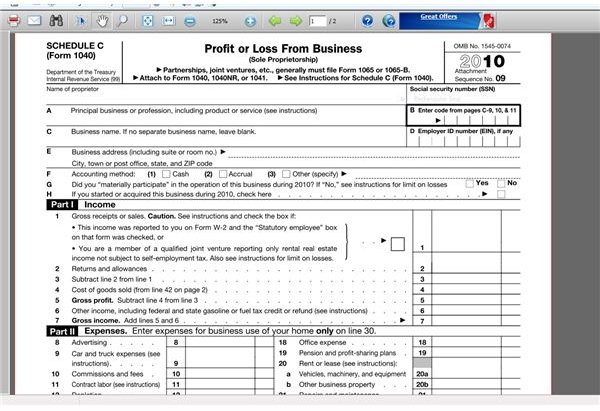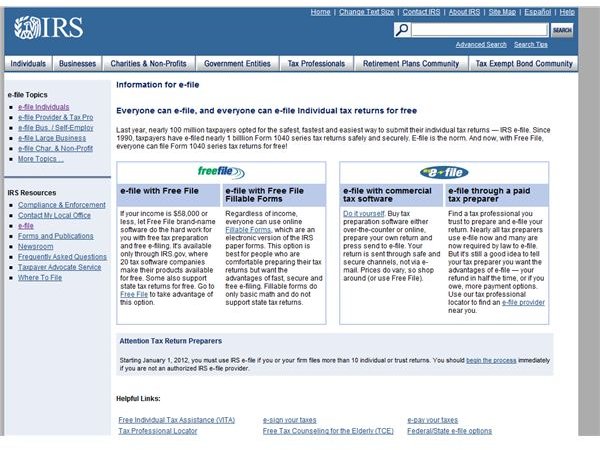Answers to Commonly Asked Tax Questions
General Tax Tips
We all want solid advice from smart people who are knowledgeable about general tax topics. Even though the IRS will answer your questions (if you can get through to them), it doesn’t guarantee the answers you’ll get. In addition, we’ve all heard anecdotes about people who posed the same question to two different IRS reps and got two different answers.
In this section, Bright Hub’s expert writers on personal finance present the basics of taxation issues. Are you aware that you are obligated to pay seven different types of taxes? All individuals pay five of the taxes mentioned in our first article, and two of them fall to business owners.
Do you understand what you can deduct on Schedule A? How are property taxes calculated, and just what does that term encompass? You’ll also find pointers about commonly overlooked deductions, and we also have some advice for newlyweds. Oh, and for the scofflaws among us; yes, the IRS can take your money, and they’ll do it so ruthlessly that Ruth won’t have a bike left to ride on or a post to tie it to.
- 7 Types of Taxes and How You Pay Them
- All About Personal Property Taxes
- Common Federal Income Tax Deductions
- Advice for the Newlywed
- Commonly Overlooked Tax Deductions
- Why the IRS Can Take Your Money
Considering the Schedule A Form?

There’s nothing wrong with trying to reduce your tax bill as much as possible–the big corporations do it! Do you know if it behooves you to itemize? The IRS allows people to take what is called a standard deduction, and the amount varies according to household size and marital status.
The person who has excessive medical or business expenses or someone who donates a lot of money to a charitable organization (your church and your children’s school both fall into that category) can add up the amounts involved, but you can only deduct a small percentage of each of those categories. Using the form called Schedule A is the way to calculate whether your itemized deductions would exceed the standard deduction.
If you donate to a charitable organization, it must qualify under 501(c)(3) standards, and you must have a receipt. There is also an Earned Income Credit available to people who take the standard deduction, but whether you can take it depends on your income level and whether there are dependents in the household.
For all your medical expenses, which include the premium your employer deducts from your paycheck, your deductible amount is limited to costs that exceed a percentage of your total income. We also have advice for people with health savings accounts (HSA) and flexible spending accounts (FSA).
Learn, too, whether you can deduct any of your bank fees, and whether you file as an individual or a small business. It’s also possible to include summer day camp expenses (think vacation bible school or band day camp) for your dependents under age 13 if you work while they go to camp.
- Should You Itemize?
- Tax Deductions for Charitable Donations
- Can You Claim the Earned Income Credit (EIC)?
- Medical Tax Deductions
- Taxes and the HSA and FSA for 2011
- Bank Fees and Tax Deductions
- Deduct Your Kids’ Summer Camp Costs
Real Estate: Your Biggest Single Deduction

For most of us, our home qualifies as our single biggest expense and investment. Real estate tax deductions are also an important line item on the Schedule A form, and you can learn here just what your county property taxes cover and which portions of that amount are, in fact, deductible. Next, think about the idea of selling your home at a profit and learn why it’s important to save the receipts for every little thing you buy for the upkeep of your home. We also have information about deducting your selling costs when that time does come.
For the person who invests his money in real estate, learn why and where you can claim the mortgage interest on any rental properties that you own; remembering to depreciate it can cut your tax bill. We also have a list of qualifying deductions for investment properties.
- Deductible Property Taxes for Homeowners
- Tax Considerations: Home Sales
- Can You Deduct Selling Costs When You Sell Your Home
- Where to Claim the Mortgage Interest on Rental Properties
- Deductions for Investment Properties
Do You Qualify as a Small Business?

Whether you babysit, walk pets, write, dabble in photography, or sell chocolates to your coworkers, if your earnings go beyond a very limited amount, you are obligated to pay taxes on them. Your tax bill is already a big expense even before you add in this extra income, so find out exactly which expenditures allow you to slash your tax responsibility. Remember to save receipts for every possible work-related expense because itemizing them on the Schedule C form will save you money—and it is not complicated.
If you work for yourself—without an employer holding his portion of Social Security and Medicaid taxes—then you’ve got to pay them all on your own. In addition, you have to pay income tax on the money you earn. That’s why it’s important to document each expense related to your business. We also have tax tips for landlords. The last article discusses the very important “making work pay” credit, so you don’t overpay your social security or Medicare tax obligations.
- Tax Deductions for the Self-Employed
- The Sole Proprietor and the Schedule C Form
- Tax (and Other Money-Saving) Tips for Landlords
- Understanding How the Self Employed Person Pays Taxes
- A Collection of Resources for Small Business Owners
- The Making Work Pay Credit
Using Tax Preparation Software
Many people prepare their own taxes, believe it or not. They read up on topics, like the ones contained here, and they pay close

attention to the wording in the IRS publications. However, should you file on your own? Paying for assistance is a tax-deductible expense, if you itemize. We have a review of the Turbo Tax software, made by the people who publish Quicken, plus a comparison of other online options such as TaxAct Free Edition, H&R Block Tax Cut, Turbo Tax, eFile, Online Tax Pros, and the IRS’s recommended free software.
- Should You File on Your Own?
- Turbo Tax Software Review
- The Best Free Software for Tax Return Preparation
Make the Best of Tax Time
Nobody likes to pay taxes, but if you fail to file on time and cannot pay the amount you owe, the interest and penalties add up quickly. Make the best of the situation by learning how to reduce your tax bill. Every time you make a purchase ask yourself if there is even a remote possibility that the item qualifies as a business or personal medical expense or if it was used to improve your home, and get in the habit of saving your receipts.
Do you have a question about a topic not covered here? Drop a line in the comment section below, and if Bright Hub does not already offer an article on the subject possibly, we can get one of our personal finance writers to answer it for you. I am also interested in hearing whether you file yourself, visit a professional tax filing service in your neighborhood, or use an online service.
References
- Images
- Morguefile, sideshowmom, free license
- Screenshots taken by the writer from the IRS website (Schedule A, the home mortgage deduction chart, Schedule C, and tax preparation software page) at
- Read All About the IRS Suggestion Box: What Citizens Think of Taxes
